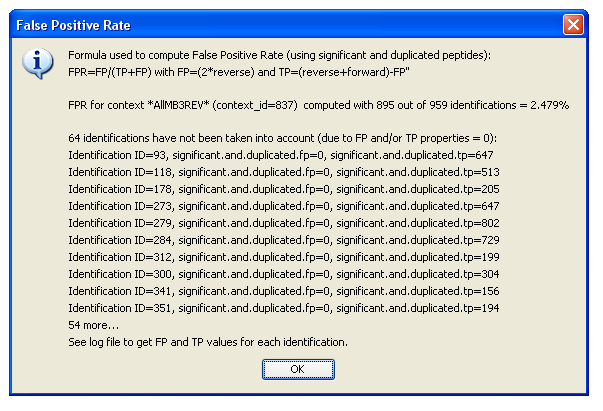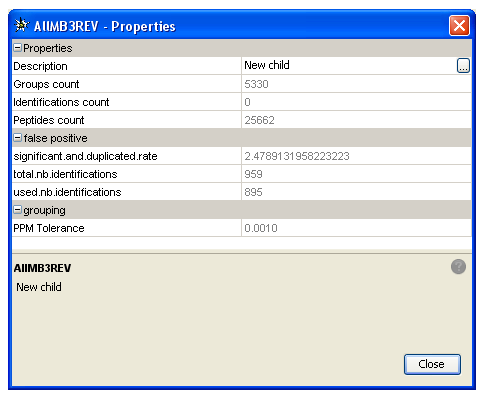False Positive Rate
The Formula used to compute False Positive Rate is:
- FPR = ∑FP/(∑TP+∑FP)
- with FP = (2*reverse). This FP value is get from the “significant.and.duplicated.fp” identification property.
- with TP = (reverse+forward) - FP. This TP value is get from the “significant.and.duplicated.tp” identification property.
- ∑FP represents the sum of all “significant.and.duplicated.fp” values (i.e. the sum of the “significant.and.duplicated.fp” property of all identifications under the context)
- ∑TP represents the sum of all “significant.and.duplicated.tp” values (i.e. the sum of the “significant.and.duplicated.tp” property of all identifications under the context)
![]() The user can retrieve the significant.and.duplicated.fp and significant.and.duplicated.tp of all the identifications in the log.
The user can retrieve the significant.and.duplicated.fp and significant.and.duplicated.tp of all the identifications in the log.
If one (or more) identification contains a zero value for one or both properties,
this identification is not taken into account in the calculation.
For example, in the screen shot on the left, you can read that 895 out of 959 identifications were used for the calculation.
The user is informed about this in the resulting dialog message and in the context properties:

